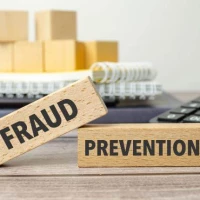
Charity & Donation Scams
Get in touchAt Scam Claims, we support victims and across the UK who have been targeted by fraudsters posing as legitimate charities, fundraising platforms, or emergency relief campaigns.
Charity and donation scams are a fast-growing form of fraud, with criminals exploiting goodwill during crises such as natural disasters, wars, or high-profile appeals.
These scams cause not only financial loss but also emotional harm, leaving victims feeling betrayed for believing they were helping a worthy cause.
Our solicitors provide specialist legal support to pursue compensation, challenge negligent institutions, and maximise the chances of recovering funds.
Why Have Charity and Donation Scams Become a Major Problem?
Charity scams occur when fraudsters create fake appeals or impersonate trusted organisations to collect fraudulent donations. Victims are often approached through social media adverts, emails, text messages, or even door-to-door collections.
Fraudsters use professional branding and fabricated stories to make their requests seem genuine. The rise of online crowdfunding platforms and digital donations has made these scams easier to execute and more difficult to detect.
How Much Money Do Victims Typically Lose to Charity Scams in or Around ?
Losses from charity and donation scams range from small sums such as £10 or £20 to larger contributions made by businesses or high-net-worth individuals.
National data shows that millions of pounds are stolen each year through fraudulent appeals, particularly during emergencies when donations surge. Even modest amounts add up when thousands of victims are targeted across the region.
Which Types of Charity and Donation Scams Are Most Common Across ?
Fraud solicitors frequently deal with a range of scams, including:
Fake crowdfunding appeals – Fraudulent online donation pages set up for fabricated causes.
Impersonation of charities – Scammers posing as established organisations to collect funds.
Emergency relief scams – Appeals linked to disasters or crises, exploiting urgency and sympathy.
Phishing donation emails – Fake links directing victims to counterfeit charity websites.
Text donation scams – Messages tricking donors into sending money to fraudsters.
Bogus collections – Door-to-door or street fundraisers using fake permits.
Invoice fraud – Fake donation requests sent to businesses under the guise of genuine charities.
Can Victims Recover Funds Lost to Charity and Donation Fraud?
Victims may be able to reclaim money depending on how the donation was made. Payments by credit card or PayPal often carry added protection, while bank transfers can sometimes be challenged under Authorised Push Payment (APP) fraud rules.
Even when the fraudsters themselves cannot be traced, legal claims, regulatory complaints, and civil proceedings against negligent institutions improve the chances of recovery.
Contact Scam Claims to discuss your options for financial recovery.
How Do Lawyers Work With Banks and Regulators to Recover Funds?
Lawyers specialising in charity scams work with banks to trace payments, request freezes on fraudulent accounts, and challenge refusals of reimbursement.
They also escalate cases to regulators such as the Charity Commission, the Financial Ombudsman Service, and the Payment Systems Regulator. This coordinated approach increases accountability and strengthens victims’ claims for compensation.
Are No Win, No Fee Options Available for Charity Scam Claims?
Our charity and donation scam solicitors offer no-win, no-fee agreements so victims can pursue justice without worrying about upfront solicitor’s costs.
Fees are only payable if compensation is secured, usually as a percentage of the recovered amount. This makes legal support accessible to individuals and organisations that have already suffered significant financial losses.
What’s the Process for Bringing a Charity Scam Claim Forward in or Around ?
The process of making a charity & donation scam claim begins with an initial consultation, where victims provide evidence such as emails, receipts, or screenshots of fraudulent appeals.
Solicitors review the strength of the case and advise whether recovery is possible through banks, card providers, or civil claims. From there, they file claims, negotiate with financial institutions, and escalate to regulators or the court if necessary. Victims receive clear updates at every stage, ensuring transparency throughout the process.
What Legal Support Do Fraud Solicitors Provide for Donation Scam Cases?
Fraud solicitors provide comprehensive services to support victims of charity and donation scams, including:
Case review – Assessing the claim and identifying recovery routes.
Evidence gathering – Collecting proof of fraudulent appeals and payments.
Bank and platform claims – Challenging financial institutions and payment processors.
Regulatory complaints – Filing cases with the Charity Commission or Ombudsman.
Civil litigation – Taking direct legal action against fraudsters or associated parties.
Reporting guidance – Assisting victims with reports to Action Fraud and authorities.
Do Solicitors Handle Both Online and Offline Charity Scam Cases?
Charity and donation scam solicitors manage both online and face-to-face fraud claims. Online scams are increasingly common via crowdfunding platforms and fake charity websites, but offline scams, such as bogus collections and fraudulent canvassing, remain prevalent.
Regardless of method, solicitors work to recover funds, pursue accountability, and protect victims’ rights.
Contact Scam Claim Solicitors today to find out how we can support your case.
Get in touch
Skip to
Gallery



